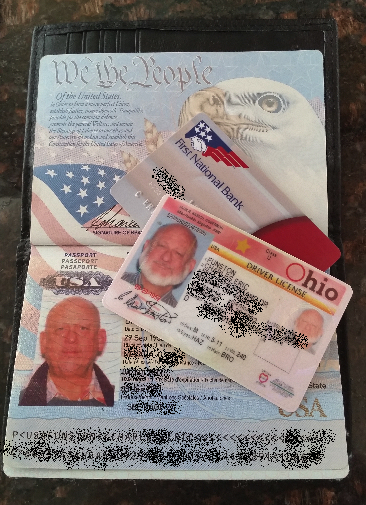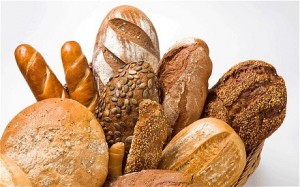====================
A sermon offered on Christmas Eve, December 24, 2015, to the people of St. Paul’s Episcopal Church, Medina, Ohio, where Fr. Funston is rector.
(The lessons for the day are Isaiah 9:2-7; Psalm 96; Titus 2:11-14; and Luke 2:1-20. These lessons may be found at The Lectionary Page.)
====================

Where refugees seek deliverance that never comes
And the heart consumes itself, if it would live,
Where little children age before their time,
And life wears down the edges of the mind,
Where the old man sits with mind grown cold
While bones and sinew, blood and cell,
go slowly down to death,
Where fear companions each day’s life,
And Perfect Love seems long delayed,
Christmas is waiting to be born
In you, in me, in all mankind.
(Howard Thurman, Christmas is Waiting to be Born in The Mood of Christmas, Friends United Press, Richmond, IN:1985, p 21)
As many of you know, I have a tradition of keeping my eye open, while doing my Christmas shopping, for something on a store shelf to use as a physical illustration for this annual event, this sermon on the Nativity of Our Lord and Savior Jesus Christ. Over the years, these illustrative objects have included a pair of Christmas stockings, a Christmas banner with the greeting misspelled, a stuffed frog wearing a Santa hat, and last year’s mechanical dancing dachshund. Finding and using the annual “focus object” has become a source of great fun for me and I hope for the congregations who’ve been subjected to my preaching. This year, however, nothing on the shelves spoke to me.
Maybe that’s because I really didn’t do much in the way of Christmas shopping; I did a lot of driving around but not much buying. And while I drove, I listened (as I usually do in my car) to what’s called “talk radio.” This year, the talk was all about refugees, with some commentators claiming it’s too easy to get into this country and some claiming it’s too hard, and all of them describing the process of “vetting” or doing background checks on immigrants. It made me think of my great-great-grandfather, who came to this country a refugee from the township lands of Donegal in the northern part of Ireland during “an Gorta Mor,” the Great Hunger, the so-called Irish potato famine. He came without a single document, with no proof of identity; he got off a ship in the port of New Orleans, made his way up the Mississippi River, settled in sourthern Indiana, married a German girl, and started the family from whence I came, but left no documentary evidence of any of that. He couldn’t have been “vetted” at all.
This is also the time of year, Christmas always is, when the religious press is filled with articles either claiming that the historical existence of Jesus can’t be proved, or answering claims that the historical existence of Jesus can’t be proved. And everyone agrees that there are very few mentions of Jesus outside of the bible; maybe one in a Roman criminal record and one that amounts to little more than a dismissive footnote in a work by the historian Flavius Josephus. Again, I was reminded of my great-great-grandfather. I know quite a bit about John Henry Funston, but I can’t document any of it. Believe me, I’ve tried! If I were asked to prove his existence from public records, I couldn’t do it. Nonetheless, I know he existed; I wouldn’t be here if he hadn’t. I know that Jesus existed; we wouldn’t be here if he hadn’t.
So as I was doing what little shopping I did, listening to talk about “vetting” refugees and contemplating the historical evidence of Jesus (or the lack of thereof), I did finally identify a focus object for tonight . . . or I should say a “focus category” . . . these – my identity papers. My driver’s license, my passport, my bank card, my membership cards for the Bar and various fraternal organizations. You, I’m sure, have a wallet (and perhaps a file or a strong box at home) full of similar papers. Vetting us, proving our existence, moving from place to place, gaining admission to special places, crossing borders from state to state or country to country . . . all these things are easy for us. We have these identity papers.
These papers, especially our driver’s licenses and passports, allow us to do what the refugees cannot, what my great-great-grandfather who had no papers could not do today, what Mary and Joseph could not do today . . . to cross borders and move freely from place to place. And these papers give us a lens through which to appreciate, in a new way, the meaning of Christmas which, once again in our time, “is waiting to be born in you, in me, in all [humankind].”
We heard this evening only a part of the Christmas story – we all know that there is a larger context, more to tell. This is a story that began nine months earlier when the Angel Gabriel surprised a young, teenage girl in the town of Nazareth with the invitation to be the bearer of God’s Child; this is a story that will not end, ever. The angel crossed the border between heaven and earth to make his announcement to Mary, and that set in motion a series of border crossings that is still going on:
- between the divine and the human when Holy Spirit overshadowed Mary and she conceived
- between law and grace when Joseph, who could have canceled their engagement and even had her killed, accepted her pregnancy and his fostering of the Child
- between the tetrarchy of Samaria and Galilee and that of Judea as the Holy Couple made their way from Nazareth to Bethlehem
- between the Holy Land and countries to the East (and possibly the North and South) when the Magi came to pay homage
- between Judea and Egypt when the Holy Family became refugees escaping Herod’s slaughter of the Holy Innocents, and then back again when they returned
- between Gentile and Jew when Jesus healed the Syrophoenician woman’s daughter in the region of Tyre, when he spoke with the Samaritan woman at Jacob’s well, and when he healed the Roman Centurion’s servant
- between life and death when Christ was crucified and died, when he was buried, and when rose again
- between earth and heaven again, between human and divine again when he ascended in the sight of his disciples
- between the bondage of sin and the freedom of risen life in the Redeemer when you and I were baptized
Borders crossed, barriers removed, reconciliation accomplished.
A couple of years ago a rabbi named Irwin Kula wrote an essay entitled Crossing Borders: Jews and Christmas in America. In it he commented
The majority of Americans, including more than 80 percent of those less than 30 years of age, accept marriage across all types of boundaries, including ethnic and racial. We are creating identities and webs of relationships that do not fit our inherited boxes and labels. And so the fixed ways of dividing “us” and “them” are breaking down and not surprisingly people deeply committed to their own groups and creeds are worried.
***
At their best, our ancient religious traditions know this, which is why they all teach we are one global family . . . .
There are no roadmaps, which, paradoxically is the hallmark of a genuine spiritual journey. But the more people love each other, the more people with different inheritances and traditions form intimate relationships, and the more we learn the best of each others insights and wisdom, the more discerning we will be about what we need to bring along with us from our traditions to help create a better world in this next era. (The Wisdom Daily)
Rabbi Kula hits the nail squarely on the head when he speaks of “creating identities and webs of relationship that do not fit inherited boxes.” In the Birth of Jesus, in the life of Jesus, in the death and resurrection of Jesus, and in our baptism into his never-ending story, the Holy Spirit creates in us new identities and new webs of relationship. We are no longer defined by our driver’s licenses, our credit cards, our passports, and all the rest. Christmas gives us new papers, a new passport!
Christmas is, for those who wish to follow the way of Jesus, an invitation to accept a new identity. For us who live comfortable and safe lives, it is an invitation to become the inn-keeper in the story; to open the way for those who, like Mary and Joseph, come from far away, who seem ragged, marginal, or in transition. They may come from the desert wilderness of Syria or from the rain forests of Central America, but they may also come from the streets of Detroit or Cleveland, or from the wasteland of addiction, the outback of unemployment, the deep darkness of depression and mental illness. They may even be members of our own families:
This is how God finds us, at this very dark time of the year, the winter solstice, when the daylight hours have shrunk to their minimal light. He comes knocking at the door, looking for a haven, for a place to rest and recover. (CNN editorial by Jay Parini)
He comes again, as he comes every Christmas, as he comes every day, seeking to cross the borders, the boundaries, the barriers of our lives, asking us to “strive for justice and peace,” to respect the dignity of every human being,” to welcome again the Babe of Bethlehem who is born in all persons and all times. “Every year at Christmas, he comes to us as a child on the run with his impoverished and terrified parents. He knocks at the door of our house and our hearts. And we let him in – or we turn him away.” (Jay Parini)
Christmas is also an invitation to remember that, as St. Paul put it in his letter to the church in Ephesus, we were all once “aliens from the commonwealth of Israel, and strangers to the covenants of promise, having no hope and without God in the world.” But through the Incarnation of Christ, “in his flesh he has made both groups into one and has broken down the dividing wall” and “created in himself one new humanity,” so that none of us are any “longer strangers and aliens, but . . . citizens with the saints and . . . members of the household of God.” (Eph. 2: 12-19) In the birth of Jesus, in the life of Jesus, in the death and resurrection of Jesus, and in our baptism into his story, we have a new identity, a new passport.
The voice of the angels to shepherds on the first Christmas Eve proclaimed God’s promise of peace, of borders crossed and barriers breached, not only in First Century Judea, and not only in the future nor only in heaven, but right here on earth today, if we will but live into the Christmas invitation, into our new identity. Last week, the Most Rev. Justin Welby, Archbishop of Canterbury, offered a meditation in which he said that Christmas invites us to take the risk of reaching out to the other and “see[ing] what happens. As Christians we are called to be people who take that first step, who take the risk of kindness because we believe the other person is a gift to us from God, just as we can be a gift to them.” (Facebook Status, 4th Sunday of Advent)
Striking a similar note, the Quaker philosopher Parker Palmer just yesterday offered a reflection reminding us that we are
called to share in the risk of incarnation. Amid the world’s dangers, [we are] asked to embody [our] values and beliefs, [our] identity and integrity, asked to allow good words to take flesh in [us]. Constrained by fear, [we] often fall short. And yet [we] still aspire to walk [our] heart-and-soul talk, however imperfectly. – Christmas is a reminder that [we are] invited to be born time and again in the shape of [our] God-given self – which means embracing the vulnerability of the Christmas story. (On Being)
Christmas is a reminder and an invitation. Christmas is the passport we receive at our baptism empowering us to cross the borders.
I began this sermon with a meditation entitled Christmas Is Waiting to Be Born by the great African-American theologian Howard Thurman from his book The Mood of Christmas. I’d like to close with another from the same book:
When the song of the angels is stilled,
When the star in the sky is gone,
When the kings and princes are home,
When the shepherds are back with their flock,
The work of Christmas begins:
To find the lost,
To heal the broken,
To feed the hungry,
To release the prisoner,
To rebuild the nations,
To bring peace among others,
To make music in the heart.
(The Mood of Christmas, p 32)
May Christmas be born in us, and may the Birth of Jesus empower us to cross the borders, to breach the barriers, to overcome the boundaries, and to do the work of Christmas: to “see and serve Christ in all persons, loving [our] neighbors as [ourselves].” Amen.
====================
A request to my readers: I’m trying to build the readership of this blog and I’d very much appreciate your help in doing so. If you find something here that is of value, please share it with others. If you are on Facebook, “like” the posts on your page so others can see them. If you are following me on Twitter, please “retweet” the notices of these meditations. If you have a blog of your own, please include mine in your links (a favor I will gladly reciprocate). Many thanks!
====================
Father Funston is the rector of St. Paul’s Episcopal Church, Medina, Ohio.
 Languages and the study of languages fascinate me – if you didn’t know that before this series on the Lord’s Prayer, you probably know it now – and I am therefore always keenly aware of the difficulty of fully appreciating the Holy Scripture if we only consider the meaning of the English translation.
Languages and the study of languages fascinate me – if you didn’t know that before this series on the Lord’s Prayer, you probably know it now – and I am therefore always keenly aware of the difficulty of fully appreciating the Holy Scripture if we only consider the meaning of the English translation.  A Native American proverb instructs us, “When you were born, you cried and the world rejoiced; live your life in a manner that when you die, the world cries and you rejoice.” Today, on what would have been Sheryl Ann King’s 48th birthday, the world (you and me and everyone who knew and loved Sherry) is crying, but Sherry is rejoicing. “If you loved me,” Jesus told his followers, “you would rejoice that I am going to the Father” (Jn 14:28); we who love Sherry, let us rejoice (even through our tears) that she, too, has gone to the Father.
A Native American proverb instructs us, “When you were born, you cried and the world rejoiced; live your life in a manner that when you die, the world cries and you rejoice.” Today, on what would have been Sheryl Ann King’s 48th birthday, the world (you and me and everyone who knew and loved Sherry) is crying, but Sherry is rejoicing. “If you loved me,” Jesus told his followers, “you would rejoice that I am going to the Father” (Jn 14:28); we who love Sherry, let us rejoice (even through our tears) that she, too, has gone to the Father. John the Baptizer came, Luke tells us, “proclaiming a baptism of repentance for the forgiveness of sins.” (Lk. 3:3) In today’s Gospel lesson, John tells the crowds who came to him, “Bear fruits worthy of repentance.” (v. 8) Our catechism teaches us that repentance is required of us to receive the Sacraments. With regard to baptism, the catechetical requirement is that we “renounce Satan, repent of our sins, and accept Jesus as our Lord and Savior;” with regard to the Holy Eucharist, that we “examine our lives, repent of our sins, and be in love and charity with all people.” (BCP 858, 860) But John’s admonition and the Catechism’s requirements leave us wondering, “What exactly is ‘repentance’?”
John the Baptizer came, Luke tells us, “proclaiming a baptism of repentance for the forgiveness of sins.” (Lk. 3:3) In today’s Gospel lesson, John tells the crowds who came to him, “Bear fruits worthy of repentance.” (v. 8) Our catechism teaches us that repentance is required of us to receive the Sacraments. With regard to baptism, the catechetical requirement is that we “renounce Satan, repent of our sins, and accept Jesus as our Lord and Savior;” with regard to the Holy Eucharist, that we “examine our lives, repent of our sins, and be in love and charity with all people.” (BCP 858, 860) But John’s admonition and the Catechism’s requirements leave us wondering, “What exactly is ‘repentance’?”  It’s the Second Sunday of Advent so according to our lectionary tradition, we hear the words of John the Baptizer, the voice of one crying in the desert, calling us to clean up the roadways and build a straight path for God’s coming. We are all familiar with the Baptizer. He’s some sort of cousin of Jesus. He’s a bit of a wild man; he lives in the wilderness wearing rough clothing and eating only what foods he can pick from desert plants and animals, “locusts and wild honey” is the way the evangelists put it. This year we hear Luke’s version of John’s story.
It’s the Second Sunday of Advent so according to our lectionary tradition, we hear the words of John the Baptizer, the voice of one crying in the desert, calling us to clean up the roadways and build a straight path for God’s coming. We are all familiar with the Baptizer. He’s some sort of cousin of Jesus. He’s a bit of a wild man; he lives in the wilderness wearing rough clothing and eating only what foods he can pick from desert plants and animals, “locusts and wild honey” is the way the evangelists put it. This year we hear Luke’s version of John’s story. Perhaps you’ve heard about the recent advertisement that the Church of England wants to run in cinemas in the United Kingdom. It’s part of a campaign which includes the Church’s new website called
Perhaps you’ve heard about the recent advertisement that the Church of England wants to run in cinemas in the United Kingdom. It’s part of a campaign which includes the Church’s new website called 

